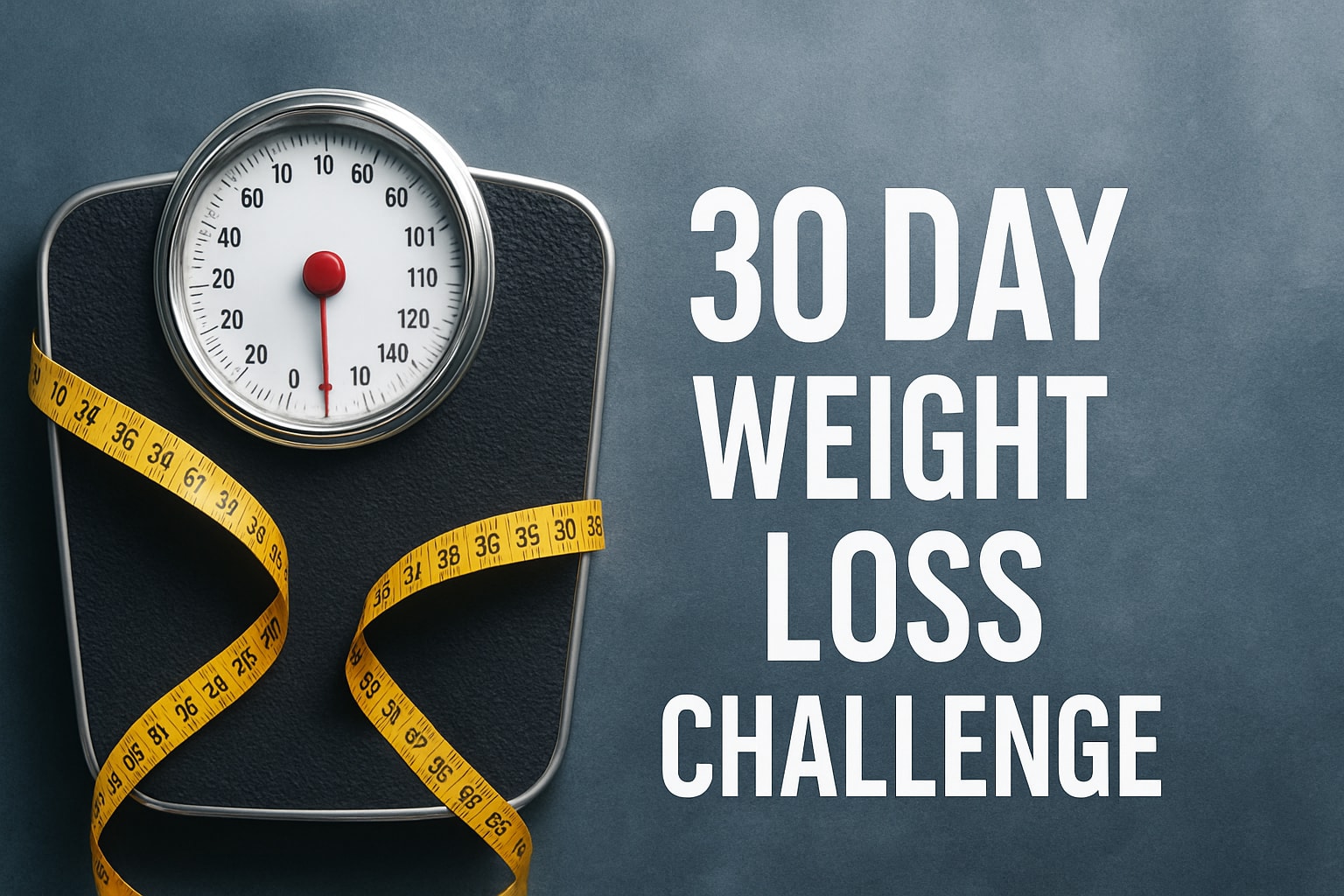Can an antidepressant really help you shed pounds? The buzz around wellbutrin weight loss is growing as new research and real-world stories make headlines for 2025. This guide will unpack how Wellbutrin may influence your weight, the latest scientific findings, and actionable ways to achieve healthy, sustainable results. We will dive into how Wellbutrin works, who is most likely to see changes, what to expect on your journey, practical tips to manage your weight, expert advice, and key safety points. Use this as your trusted resource for understanding and optimizing wellbutrin weight loss.
Understanding Wellbutrin: How It Affects Weight
Wellbutrin, known generically as bupropion, stands out among antidepressants for its unique impact on weight. While many depression medications are linked to weight gain, Wellbutrin is often considered weight-neutral or even supportive of weight loss. For those exploring the potential of wellbutrin weight loss, understanding the underlying mechanisms and individual factors is essential.

What is Wellbutrin? Overview and Uses
Wellbutrin (bupropion) is a prescription antidepressant classified as a norepinephrine-dopamine reuptake inhibitor (NDRI). It is FDA-approved for major depressive disorder, seasonal affective disorder, and as a smoking cessation aid. Unlike most antidepressants, it is sometimes prescribed off-label for wellbutrin weight loss, especially in patients concerned about medication-related weight changes.
There are three main formulations:
- Immediate-release (IR): Taken 2–3 times daily, with a shorter duration.
- Sustained-release (SR): Taken twice daily, offering steadier blood levels.
- Extended-release (XL): Taken once daily, often with fewer side effects.
By 2025, Wellbutrin remains popular due to its favorable weight profile. It is frequently chosen for patients who have experienced weight gain on selective serotonin reuptake inhibitors (SSRIs) or serotonin-norepinephrine reuptake inhibitors (SNRIs). SSRIs like Lexapro, Zoloft, and Paxil are commonly associated with increased appetite and weight gain, while Wellbutrin is often the preferred alternative for those wanting to avoid these effects.
The Science: Why Wellbutrin May Lead to Weight Loss
The mechanism behind wellbutrin weight loss centers on its effect on brain chemicals. Wellbutrin increases dopamine and norepinephrine, neurotransmitters involved in regulating mood, motivation, and appetite. This shift can lead to appetite suppression, making it easier for some individuals to resist cravings and emotional eating.
Additionally, Wellbutrin may modestly boost energy expenditure, helping users burn more calories throughout the day. By influencing the brain's reward pathways, Wellbutrin can reduce the urge for comfort foods and snacks, supporting healthier eating patterns. Clinical trials have shown that up to 28% of users lose more than 5 pounds, especially among those who are overweight or obese. In fact, a 48-week placebo-controlled trial found that bupropion SR significantly enhanced weight loss in obese adults compared to placebo.
Interestingly, Wellbutrin is also one of the active ingredients in Contrave, a medication approved for chronic weight management. When combined with naltrexone, bupropion further supports weight control by acting on both appetite and cravings, confirming its valuable role in modern obesity treatment.
Who is Most Likely to Lose Weight on Wellbutrin?
Not everyone will experience wellbutrin weight loss to the same degree. Research shows that individuals with a higher BMI or those classified as overweight or obese tend to lose more weight on Wellbutrin. Other factors play a role, including:
- Age: Younger adults may see more pronounced changes.
- Gender: Some studies suggest women respond differently, though results vary.
- Metabolic factors: Baseline metabolism, thyroid function, and other health issues can influence outcomes.
- Lifestyle habits: Diet quality, physical activity, and stress management all modify results.
For example, clinical trials and real-world case studies reveal that 14–28% of Wellbutrin users lose more than 5 pounds, especially at higher doses. Those who combine medication with healthy lifestyle changes are most likely to see sustainable results. However, some individuals may notice no change or even a slight gain, highlighting the importance of personalized care and regular follow-up.
Wellbutrin Weight Loss Timeline: What to Expect
If you are considering wellbutrin weight loss as part of your health journey, understanding the timeline is essential. Many people wonder how quickly results might show and what factors could shape their experience. The process can vary, but there are clear patterns and research-backed data to help you set realistic expectations.

How Quickly Does Weight Loss Occur?
For most individuals, wellbutrin weight loss tends to emerge gradually. Clinical studies indicate that noticeable changes often begin within 8 to 24 weeks. In one large analysis, about 70 percent of participants lost more than 5 percent of their body weight within this period. The average weight loss ranged from 7 to 10 percent of body weight in 24 weeks, especially for those who started with a higher BMI.
The first few months are typically when the most significant changes occur. Many users report initial progress in the first two months, followed by a slower but steady pace. It is important not to expect overnight results, as wellbutrin weight loss is usually modest and consistent rather than rapid.
Weight loss often plateaus after the initial months. This is a normal stage, where your body adjusts to the changes. During this time, combining medication with lifestyle habits can help maintain momentum. For actionable strategies to support ongoing progress, check out these Tips to Accelerate Weight Loss. For more on healthy routines, visit this resource.
Factors That Influence Weight Loss on Wellbutrin
Several variables can affect your wellbutrin weight loss experience. Dosage plays a key role, with higher doses sometimes linked to greater outcomes, though always under medical supervision. Adherence to the prescribed regimen also matters, as missing doses can reduce effectiveness.
Individual metabolism and genetics can shape results. Some people naturally burn calories faster, while others may have conditions such as diabetes or thyroid imbalances that impact weight. Lifestyle factors—diet, physical activity, sleep quality, and stress levels—are equally influential.
Other medications can interact with wellbutrin, either enhancing or limiting its effects on weight. It is important to review your full medication list with your healthcare provider. For deeper insight into how emotional eating and stress affect progress, see Managing Emotional Eating Habits. Explore more tips for healthy changes here, or get expert advice from dietitians.
Realistic Expectations and Variability
Not everyone will experience wellbutrin weight loss. Some may see no change, while a few could even gain a small amount. Factors such as age, baseline weight, and overall health play a role. It is important to monitor for rapid or unexpected shifts, such as losing over 10 pounds in four to six weeks, and to consult your provider if this occurs.
Remember, wellbutrin serves as a support rather than a primary weight loss tool. Combining it with balanced nutrition, physical activity, and mindful habits typically delivers the best results. If you want to learn more about sustainable changes, read Essential Tips to Avoid Weight Gain and explore additional resources here. For ongoing guidance and community support, visit Oneleaf Health.
Managing Your Weight While on Wellbutrin: Practical Strategies
Achieving healthy and sustainable results with wellbutrin weight loss is about more than just taking medication. The following strategies help you make the most of Wellbutrin’s benefits while building habits that promote lasting change. Integrating these steps into your routine can support both your physical and mental well-being.

Step 1: Monitor and Understand Your Eating Habits
Start your wellbutrin weight loss journey by becoming more aware of your current eating patterns. Use a food diary or a nutrition tracking app to log meals, snacks, and emotional triggers. This process helps you spot trends like late-night snacking or stress eating.
- Write down what, when, and why you eat
- Identify emotional cues or social situations that lead to overeating
- Review logs weekly to notice patterns
Awareness is the first step toward change. By tracking your habits, you can make targeted adjustments that support your goals. For more on mindful eating, read How Mindfulness Can Transform Your Relationship with Food. Learn more strategies for managing cravings at The Neuroscience of Cravings: Why We Eat and How to Change.
For additional support, explore https://weight-loss.oneleafhealth.com/#/.
Step 2: Build a Balanced, Nutritious Diet
Nutrition is the foundation of wellbutrin weight loss success. Focus on whole foods rich in fiber, lean proteins, and healthy fats. Limit processed foods, added sugars, and excess salt.
- Fill your plate with colorful vegetables and fruits
- Choose lean proteins like chicken, fish, beans, or tofu
- Opt for whole grains over refined grains
- Drink plenty of water throughout the day
Hydration can help control appetite and support metabolism. If you are interested in how medications can be used alongside diet, see this Naltrexone/Bupropion for obesity treatment article for insights on the combination’s role in weight management. For more practical nutrition tips, see Why Diets Fail and What Actually Works.
Looking for meal planning and habit support? Visit https://weight-loss.oneleafhealth.com/#/.
Step 3: Incorporate Regular Physical Activity
Physical activity is a vital part of any wellbutrin weight loss plan. Exercise not only helps with weight management but can also improve mood and energy, which pairs well with Wellbutrin’s activating effects.
- Aim for at least 150 minutes of moderate activity per week (e.g., brisk walking, cycling)
- Add strength training twice a week to preserve muscle
- Include flexibility and balance exercises like yoga
Start with small, achievable goals and build up gradually. The increased motivation and energy from Wellbutrin can make it easier to stick with an exercise routine. For more on building lasting motivation, read How to Build Lasting Motivation for Weight Loss.
Track your progress and celebrate non-scale victories by joining https://weight-loss.oneleafhealth.com/#/.
Step 4: Practice Mindful Eating and Stress Management
Mindful eating is a game changer for wellbutrin weight loss. Slow down and pay attention to hunger and fullness cues. Avoid distractions while eating, and savor each bite.
- Eat without screens or multitasking
- Pause before second helpings to assess hunger
- Use deep breathing or meditation to manage stress
Managing stress is essential, as it often triggers emotional eating. Wellbutrin can sometimes affect sleep, so prioritize good sleep hygiene to support weight and mood. Discover more about the link between stress and habits at https://weight-loss.oneleafhealth.com/#/.
For deeper insight, see The Neuroscience of Cravings: Why We Eat and How to Change.
Step 5: Seek Professional Guidance When Needed
While wellbutrin weight loss can be effective, working with healthcare professionals ensures your approach is safe and tailored to your needs. Consult a registered dietitian for personalized nutrition advice and a physician or psychiatrist for medication management.
- Seek help if you experience rapid or unexpected weight changes
- Discuss any side effects or concerns with your provider
- Adjust your plan based on professional recommendations
When considering medication options, review the latest in anti-obesity pharmacotherapy and always prioritize your health and mental well-being. For ongoing support, connect with the https://weight-loss.oneleafhealth.com/#/ community.
To maintain progress, read How to Build Lasting Motivation for Weight Loss and explore more science-backed articles at the Oneleaf Journal.
Wellbutrin vs. Other Antidepressants: Weight Change Comparison
When considering antidepressants, many people are concerned about potential weight changes. The wellbutrin weight loss effect is one of the most talked-about reasons patients and providers prefer it over other medications. Understanding how it compares to other popular antidepressants can help you make informed decisions for your health and goals.

How Does Wellbutrin Compare to Other Medications?
Most antidepressants are associated with some degree of weight change, but not all act the same. Here’s how wellbutrin weight loss outcomes stack up against other common options:
- SSRIs like Lexapro, Zoloft, and Paxil are frequently linked to weight gain, especially with long-term use.
- SNRIs such as Cymbalta may also contribute to gradual weight gain.
- In contrast, Wellbutrin is considered weight-neutral or even weight-reducing for many users.
A 2024 study found that patients taking Wellbutrin were 15 percent less likely to experience weight gain compared to those on Zoloft. This positions Wellbutrin as a preferred choice for individuals where weight is a concern. In fact, Wellbutrin’s unique profile has led to its inclusion in Contrave, an FDA-approved medication for weight loss that combines bupropion with naltrexone.
For those interested in the future of weight management, several investigational weight loss drugs are in development, offering hope for even more personalized solutions. But for now, the wellbutrin weight loss benefit remains a significant factor when selecting an antidepressant.
If you’re curious about the neuroscience behind cravings and food choices, explore The Neuroscience of Cravings: Why We Eat and How to Change or discover more science-backed strategies at Oneleaf’s healthy weight management hub.
Can Wellbutrin Cause Weight Gain?
Although wellbutrin weight loss is common, it’s important to know that not every individual will experience this effect. Research shows Wellbutrin is rarely associated with weight gain, making it unique among antidepressants. However, everyone’s body responds differently, and some people may notice no change or even a slight increase in weight.
Depression itself can impact appetite and weight. For some, starting Wellbutrin may simply help normalize eating patterns and stabilize weight. If you notice rapid or unexpected changes, always discuss them with your healthcare provider.
Stay proactive by tracking your progress and communicating openly with your provider. If you’re seeking ways to address emotional eating, check out How Mindfulness Can Transform Your Relationship with Food and Why Diets Fail and What Actually Works.
For additional support, Oneleaf’s neuroscience-based tools can help you develop healthy habits alongside medication. You can also boost your motivation by reading How to Build Lasting Motivation for Weight Loss and get more guidance at Oneleaf’s weight loss platform.
Remember, wellbutrin weight loss works best when combined with healthy lifestyle changes and ongoing medical guidance.
Safety, Side Effects, and When to Seek Help
Staying safe during your wellbutrin weight loss journey is essential. While Wellbutrin is considered safer than many antidepressants regarding weight, it’s not without side effects or risks. Understanding warning signs and knowing when to seek help ensures you get the benefits while minimizing concerns.
Common and Serious Side Effects of Wellbutrin
Like any medication, wellbutrin weight loss effects can come with side effects, both common and rare. Most users experience mild issues, but staying alert is vital.
Common side effects:
- Dry mouth
- Insomnia or trouble sleeping
- Headache
- Increased anxiety or restlessness
These often improve as your body adjusts. For more on managing medication changes, see How to Build Lasting Motivation for Weight Loss.
Serious side effects:
- Seizures, especially at higher doses
- Severe mood changes or agitation
- Allergic reactions (rash, swelling, trouble breathing)
If you notice rapid weight loss (over 10 lbs in 4–6 weeks), worsening mood, or any severe symptom, contact your provider immediately. Wellbutrin weight loss should never come at the expense of your safety. For additional insights, visit https://weight-loss.oneleafhealth.com/#/.
Who Should Avoid Wellbutrin for Weight Loss?
Not everyone is a candidate for wellbutrin weight loss, especially without medical supervision. The FDA does not approve Wellbutrin solely for weight loss, so off-label use requires caution.
Avoid Wellbutrin if you have:
- Seizure disorders
- Eating disorders like bulimia or anorexia
- Recent alcohol or sedative withdrawal
Certain medications may also interact poorly with Wellbutrin. Always complete a thorough medical evaluation before starting any new medication. Read Why Diets Fail and What Actually Works for safe, holistic approaches to weight management.
Discuss your full health history with your provider. If you’re unsure about your eligibility for wellbutrin weight loss, learn more here.
Monitoring Progress and Communicating with Your Provider
Regular check-ins ensure wellbutrin weight loss remains healthy and sustainable. Track your weight weekly, noting any sudden changes.
Effective monitoring tips:
- Keep a symptom and weight diary
- Note changes in mood, appetite, or side effects
- Set reminders for regular appointments
Open communication with your provider is key. Share both progress and concerns. If side effects disrupt daily life or weight changes are extreme, adjustment may be needed. Explore How Mindfulness Can Transform Your Relationship with Food and The Neuroscience of Cravings: Why We Eat and How to Change for guidance on healthy habits.
To access additional support and digital tools for tracking your wellbutrin weight loss progress, visit https://weight-loss.oneleafhealth.com/#/.
Expert Tips for Healthy, Sustainable Weight Loss with Wellbutrin
Achieving healthy, lasting results with wellbutrin weight loss is not just about taking medication. It is about building smart habits and using science-backed strategies for long-term success. Here are expert tips to help you on your journey.
1. Set Realistic Goals and Track Progress
Start with achievable goals. Aim for steady progress, such as 1 to 2 pounds per week. Use a journal, app, or progress photos to track your wellbutrin weight loss journey.
- Write down your starting weight and set milestones
- Monitor changes in energy, mood, and appetite
- Celebrate non-scale victories, like improved focus or confidence
For more on healthy goal-setting, see How to Build Lasting Motivation for Weight Loss.
2. Combine Medication with Lifestyle Changes
Wellbutrin weight loss works best when paired with balanced nutrition, regular activity, and consistent routines. Remember, medication is a support, not a substitute for healthy habits.
- Prioritize whole foods and adequate hydration
- Schedule 150 minutes of moderate exercise each week
- Use Oneleaf’s neuroscience-based approach to reinforce positive changes
Learn more about habit formation in Why Diets Fail and What Actually Works.
3. Address Emotional Eating and Triggers
Emotional eating can undermine your wellbutrin weight loss efforts. Identify patterns, such as stress or boredom, that lead to overeating.
- Practice mindful eating, savoring each bite
- Use coping strategies like journaling or deep breathing
- Try digital tools like Oneleaf for guided support
Explore How Mindfulness Can Transform Your Relationship with Food for more practical tips.
4. Stay Consistent and Patient
Weight loss with wellbutrin is often gradual. Plateaus and small setbacks are normal, so keep your focus on consistency.
- Stick to your routines, even when progress slows
- Revisit your goals and adapt as needed
- Find encouragement in community forums or support groups
Discover more about overcoming obstacles in The Neuroscience of Cravings: Why We Eat and How to Change.
5. Leverage Community and Support Resources
You do not have to do this alone. Connect with others on a similar wellbutrin weight loss path for support and accountability.
- Join online communities or local wellness groups
- Consult healthcare providers for personalized advice
- Access additional resources through Oneleaf’s digital health platform
Whenever you need extra guidance, discover more here.
By combining these strategies with wellbutrin weight loss, you can build a foundation for healthy, sustainable results. Remember, progress may look different for everyone, but consistency and support will help you reach your goals.
Frequently Asked Questions About Wellbutrin and Weight Loss
Wondering how Wellbutrin fits into your weight management journey? Below, we answer common questions about Wellbutrin weight loss, safety considerations, expectations, and the best ways to enhance your results. For more science-backed insights, explore our journal and dedicated weight loss resource.
Does Wellbutrin work for weight loss in everyone?
No, Wellbutrin weight loss is not guaranteed for every individual. While studies show a substantial proportion of users lose weight, genetic, metabolic, and lifestyle factors play a role. For instance, those with higher baseline weight may see greater effects. Always track your progress and consult your provider if you notice unexpected weight changes. For more on individual variability, visit this article.
How much weight can I expect to lose on Wellbutrin?
Clinical trials report that 14–28% of users lose more than 5 pounds, especially among those starting with a higher BMI. Some may lose 7–10% of body weight over 24 weeks. However, Wellbutrin weight loss varies, and not everyone experiences the same results. For real-world stories and science-backed strategies, explore our resource.
Is Wellbutrin safe to take solely for weight loss?
Wellbutrin is not FDA-approved specifically for weight loss. Its use for this purpose is considered off-label and should only be pursued with medical supervision. If you are considering Wellbutrin weight loss, discuss potential risks and benefits with your healthcare provider. Individuals with seizure disorders or eating disorders should generally avoid it. For safety guidelines, see this detailed guide.
Can I combine Wellbutrin with other weight loss strategies or medications?
Yes, combining Wellbutrin weight loss efforts with healthy eating, regular exercise, and behavioral tools often yields the best results. Some providers may recommend combining it with other medications, such as in Contrave. Never combine treatments without medical advice. Digital tools like Oneleaf can help reprogram habits for sustainable change.
What should I do if I experience side effects or rapid weight changes?
Monitor your symptoms and weight regularly. If you lose more than 10 pounds in 4–6 weeks or notice concerning side effects, contact your healthcare provider promptly. Adjustments to your medication or approach may be needed. For more on side effect management, read this article.
How do I talk to my doctor about Wellbutrin and weight management?
Prepare notes on your goals, experiences, and any side effects. Be honest about your expectations and ask about the risks and benefits of Wellbutrin weight loss. Your doctor can help tailor a plan that fits your unique health profile. For effective communication tips, see our expert advice.
Where can I find more resources on neuroscience-based weight loss?
Visit Oneleaf’s science-backed platform for digital programs, guided audio, and evidence-based articles. These resources support habit change, mindful eating, and long-term success.
When should I consider alternatives to Wellbutrin?
If you experience intolerable side effects, no weight change after several months, or have contraindications, discuss alternatives with your provider. Options may include other medications or non-pharmacological approaches. Explore the neuroscience of cravings to discover more strategies.
How can I maintain weight loss after stopping Wellbutrin?
Focus on sustainable habits: balanced nutrition, regular activity, and stress management. Digital tools like Oneleaf can reinforce positive behaviors and help prevent regain. Staying connected to support resources is essential for ongoing success.
As you’ve seen throughout this guide, managing weight while taking Wellbutrin is about more than just numbers on a scale—it’s about understanding your body, making mindful choices, and finding what works for you in 2025’s evolving landscape. If you’re ready to discover your unique path to healthy, lasting change, why not take the first step today You can get personalized insights, support, and science-backed strategies tailored to your needs. Let’s make your health journey easier and more effective together—Start Quizz















